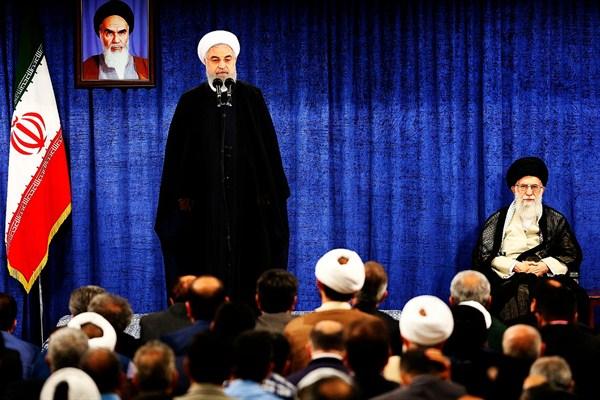Two weeks after President Donald Trump unilaterally withdrew the United States from the Iran nuclear deal, Secretary of State Mike Pompeo outlined the parameters of the “new Iran strategy” that he believes would lead to a “better deal” with Iran. It is a laundry list of 12 demands Iran must meet if it is to avoid getting hit by what Pompeo called the “strongest sanctions in history.”
But Iran won’t accept these sweeping demands. Would it actually return to the negotiating table? And how could this new strategy shape Iran’s domestic politics?
The Trump administration’s move is a huge gamble predicated on both exerting maximum pressure on Iran and demanding maximum concessions. It has added a new element into Iran’s political scene that could have an unpredictable long-term outcome, even though, based on Tehran’s reaction so far, it doesn’t look like it will come to the negotiating table anytime soon. If anything, the new U.S. strategy could intensify the cold war in the Middle East.

